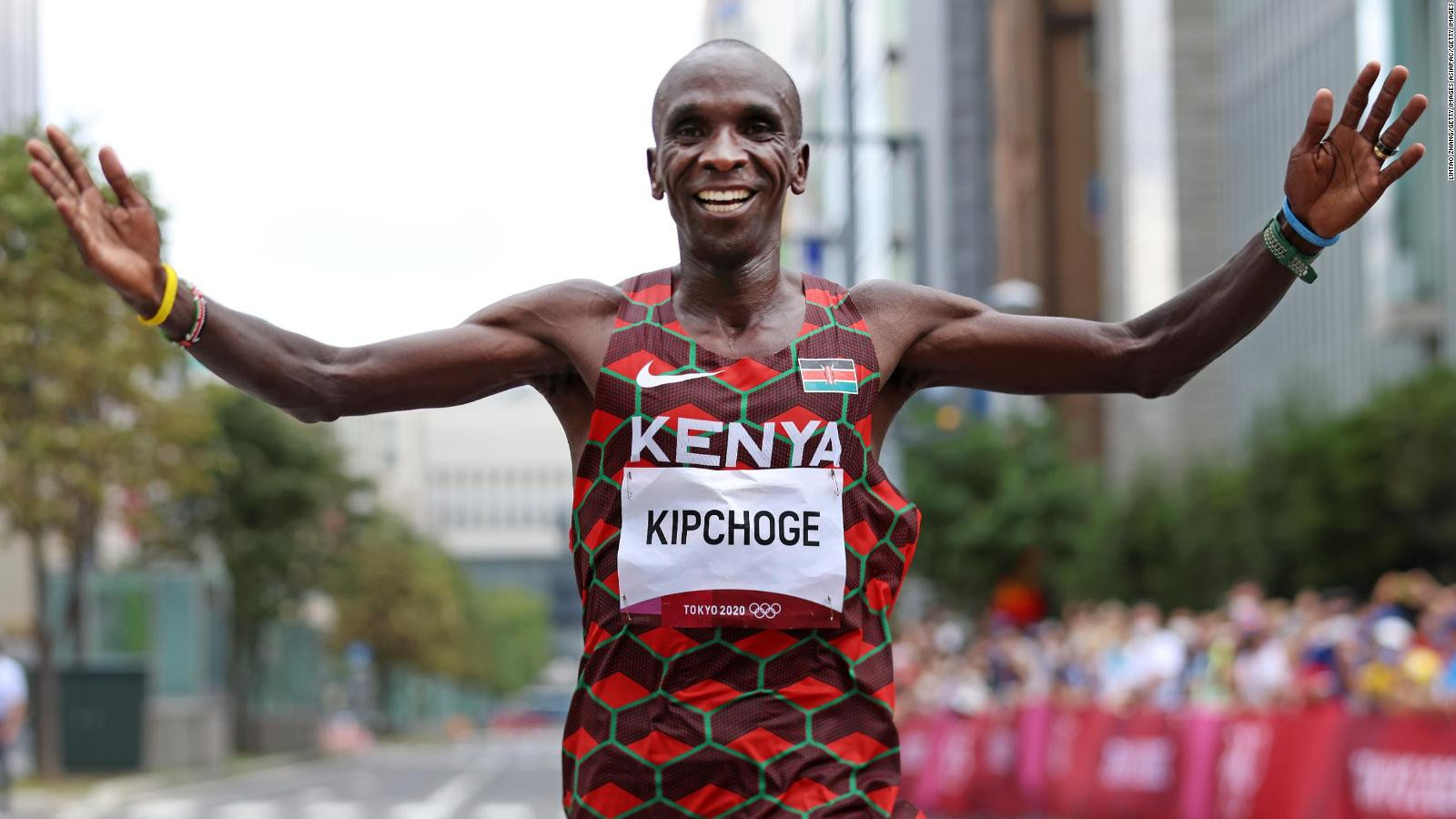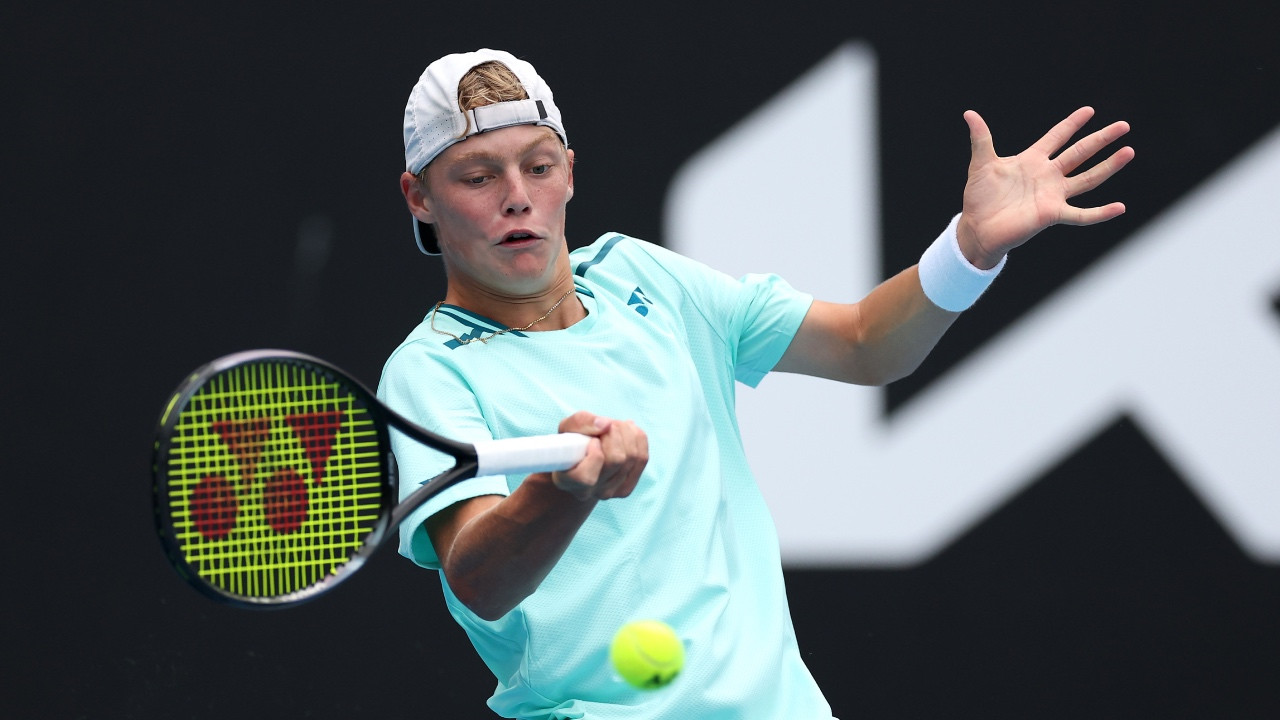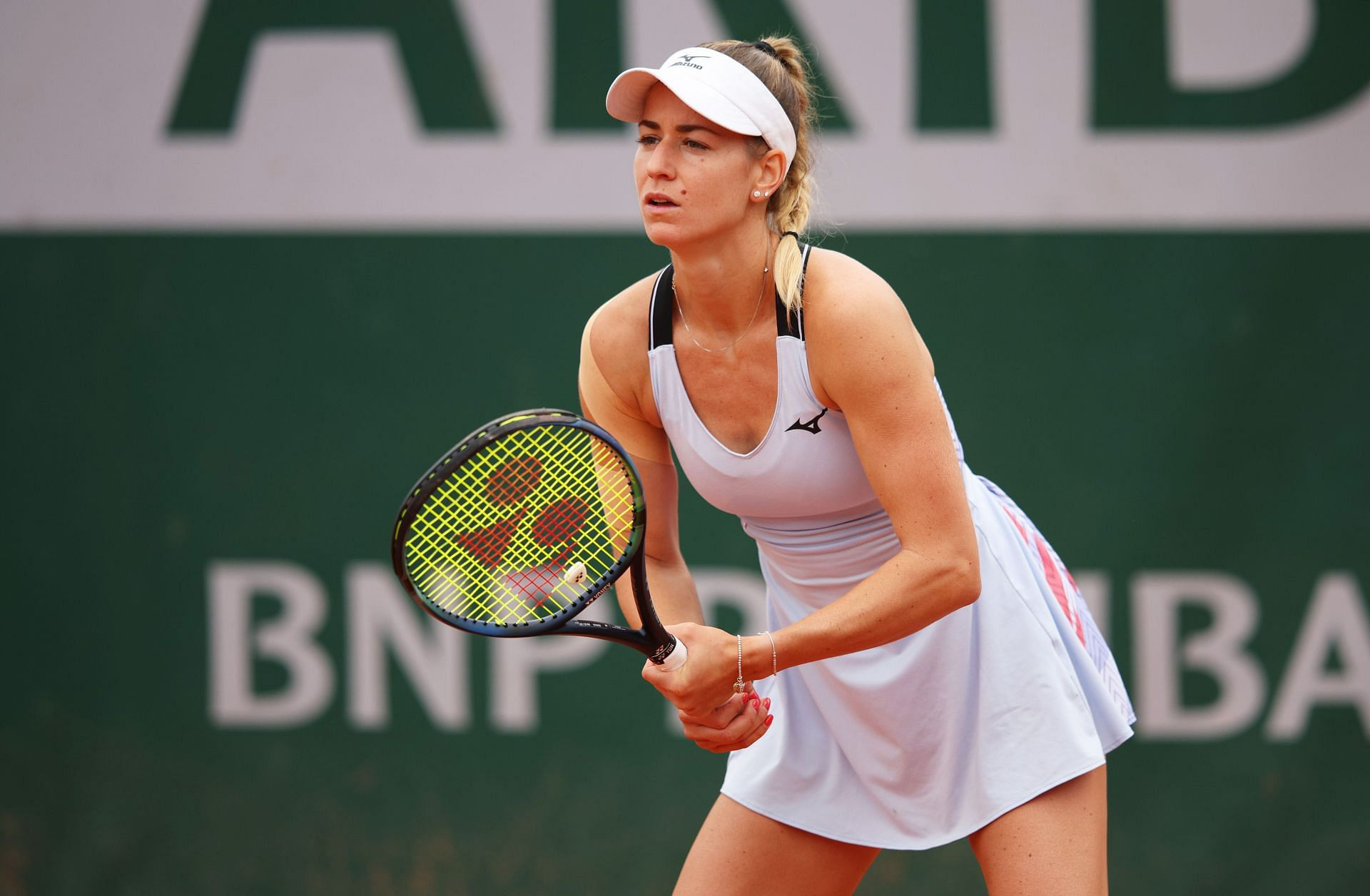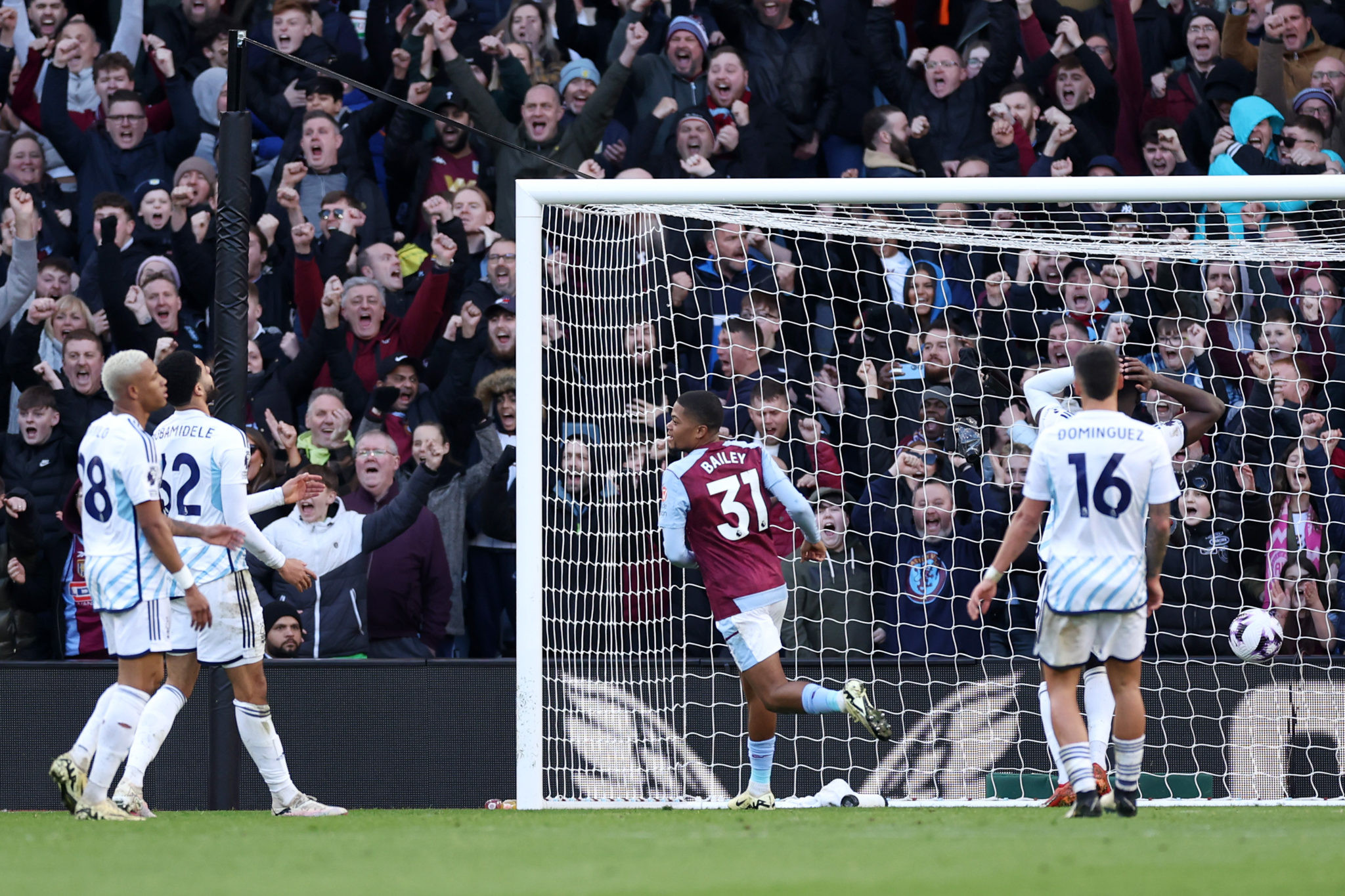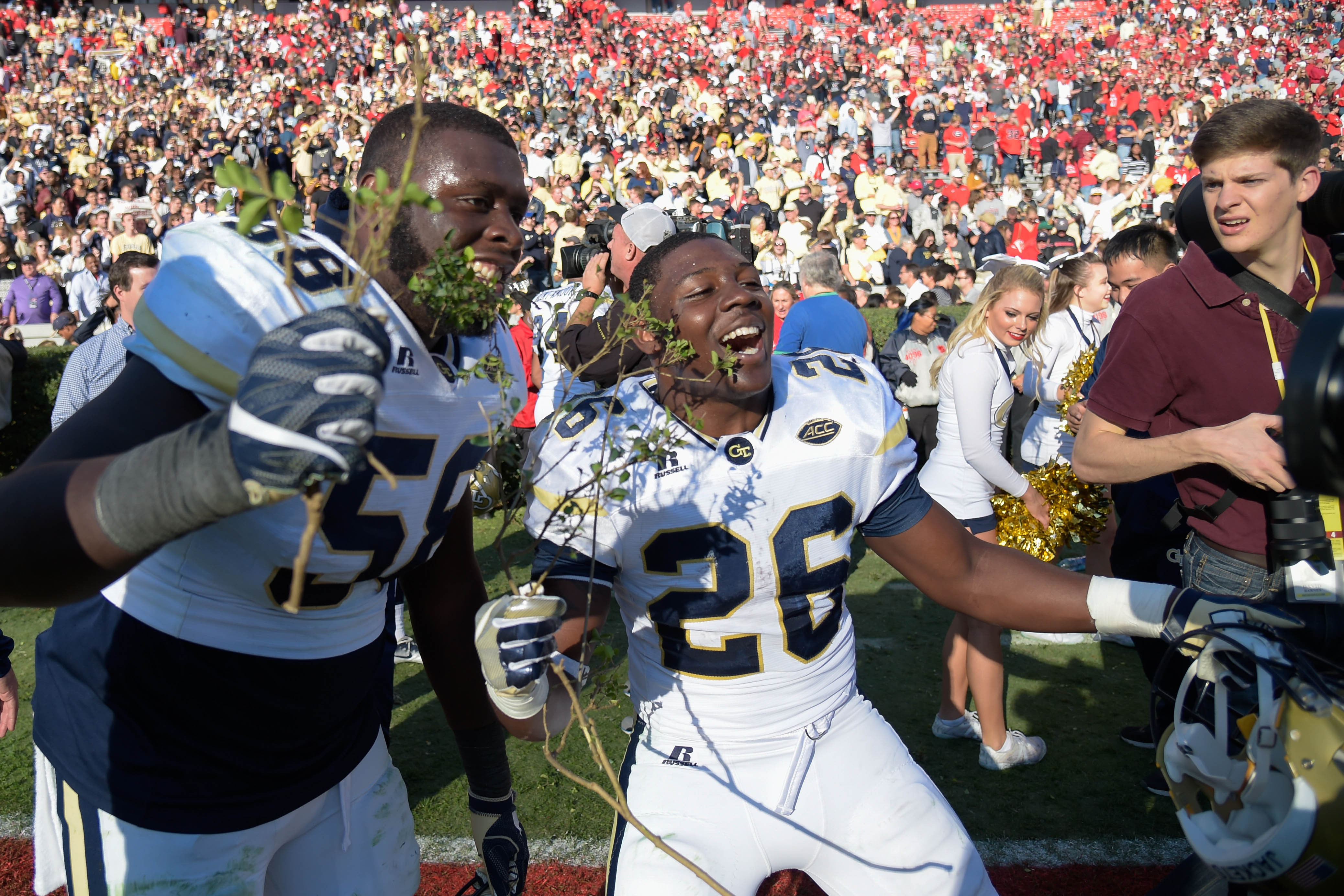Ethiopia's Tamirat Tola won gold in the men's marathon at the Paris Games on Saturday while Kenyan Eliud Kipchoge, who had been bidding for an unprecedented third consecutive Olympic crown, failed to finish.
Belgium's Bashir Abdi took silver, improving on his bronze from Tokyo, and Kenya's Benson Kipruto claimed bronze.
Tola built a strong lead early on and crossed the finish line in two hours, six minutes and 26 seconds. Emerging from a pack of frontrunners from the first steep ascent of an exceptionally hilly course, the former cross country specialist seemed only to strengthen on the second hill as others faded behind him.
Tola had an 18-second lead by the 35km mark, which he extended as the Eiffel Tower came into sight and crowds lining the streets roared him on. He became the first Ethiopian winner of the Olympic men's marathon in 24 years.
Tola's victory was all the more sweet given he was not initially on the team, having been called up after Sisay Lemma withdrew due to a hamstring injury. Tola, 32, won the New York marathon last year in a course record.
He crossed the finish line cheered on by Haile Gebrselassie, Ethiopia's former double Olympic 10,000m champion, whom he has cited as one of his inspirations to become a marathon runner.
Abdi and Kipruto were jostling with Ethiopia's Deresa Geleta for the next two steps on the podium but Geleta faded in the last two kilometres.
Abdi, who began his career competing in the 5,000 and 10,000 metres, finished in 2:06:47 with 33-year-old Kipruto posting a time of 2:07:00.
Kipruto had posted the fastest time in the world this year having won the Tokyo Marathon in March in a personal best of 2:02:16.
He dedicated his bronze medal to Kelvin Kiptum, who died in a car crash in February at the age of 24, having broken the marathon world record in Chicago last year.
Kipchoge, widely considered the greatest marathon runner of all time, failed to bag a third consecutive gold, defeated by the first ascent of the course that took athletes out to Versailles.
He had been among the frontrunners but that hill broke up the leading pack and proved too much for the 39-year-old, who was participating in his fifth Olympics.
"The first part of the race we were together, talking and trying to move together. But I don't know what happened, so I will go and see him," Kipruto said of Kipchoge after the finish.
Ethiopia's Kenenisa Bekele, who has the fifth fastest marathon time ever, finished 39th.
"It was tough, you know, to challenge those guys," the 42-year-old said.
Kipchoge's Legacy Remains Untarnished
Clearly disappointed but still holding his head high as the only man alive to win the Olympic marathon twice, the Kenyan told Olympics.com that even this wouldn’t stop him from pursuing marathon running that began 11 years ago.
“It is a difficult time for me,” he admitted after dropping out just after the 30km mark after an hour and about 40 seconds of running, with a discomfort around his waist.
"This is my worst marathon. I have never done a DNF (did not finish). That’s life. Like a boxer, I have been knocked down, I have won, I have come second, eighth, 10th, fifth – now I did not finish. That’s life."
On whether he would attempt another Olympic race at Los Angeles 2028.
“You will see me in a different way, maybe giving people motivation, but I will not run," he said.
"I don't know what next. I need to go back [home], sit down, try to figure my 21 years of running at high level. I need to evolve and feature in other things.”
A Tough Day at the Office
Kipchoge described his final few kilometers when in the media area after race, appearing in only his shorts. “I walked for about 2 kilometers, there were about 300 people walking with me. That’s why I don’t have my shirt, the socks, the shoes, the race number.”
On why he had to call it quits on Saturday, he noted it was an injury and not the grueling course. “I had a pain in my back at about 20 kilometers and decided not to finish and try to get out,” he said. “The hills didn’t affect me at all. The pain made me stop.”
A New Era in Marathon Running
Kipchoge was dethroned by Ethiopia’s Tamirat Tola who clocked 2:06:26 to secure a gold medal for his country.
Tola smashed the previous Olympic record of 2:06.32 held by the late Samuel Wanjiru from Kenya who achieved the fete in the 2008 Beijing Games.
“Tamirat Tola breaks the Olympic marathon record with 2:06:26 on what might be the most brutal marathon course ever in the history of the Olympics,” World Athletics stated.
Tola was followed closely by Belgium’s Bashir Abdi who took silver, improving on his bronze from Tokyo, and Kenya’s Benson Kipruto claimed bronze.
Tola built a strong lead early on and crossed the finish line in two hours, six minutes and 26 seconds. Emerging from a pack of frontrunners from the first steep ascent of an exceptionally hilly course, the former cross-country specialist seemed only to strengthen on the second hill as others faded behind him.
After 10 kilometres, Kenya’s Benson Kipruto who is the fastest marathoner in the world this year, was leading the pack before Tola took charge of the race.
The top three exchanged the lead until the final stretch where Tola sprinted out to scoop the Olympic gold.
While Kipchoge is a legend in the sport of athletics, with two Olympic gold medals and 10 major marathon victories, he failed to impress in the global showpiece.
At 25km, Kipchoge was trailing at position 65 before he was later recorded walking before pulling out of the race.
By the time of this publication, Kipchoge had not issued a statement over his performance at the Paris Olympics games.
Before the Paris setback, Kipchoge had won back-to-back Olympics gold medals following victories in Rio 2016 and Tokyo 2020.
A Historic Race and a New Champion
The race was grueling, with the toughest Olympic marathon course in history, featuring two steep inclines that tested even the most seasoned runners. However, it was the downhill sections that really presented a challenge. The fast descents on the second half of the race took a toll on Kipchoge, who was unable to keep up with the leaders.
It was clear from the start that this race was going to be a different kind of marathon, one that would require more than just speed and endurance. It would take strength, resilience, and a willingness to push the limits of one's body. In the end, it was Tola who had the most to give.
Father Time Catches Up
It is the curse every athlete faces, that one day the question will be asked of their body and the body simply will not respond.
No matter how immortal their feats make them, the cruel passage of time ensures that only the ink their feats are written in will stand the test of time.
Eliud Kipchoge is the greatest exponent of the marathon in history.
An 11-time marathon major winner from just 15 attempts, back-to-back Olympic champion — one of just three in history — Kipchoge boasts a CV that will be tough to be bettered by anyone.
But, as he explained in an interview with Olympics.com before the race, it is tough at the top.
"It's really tough, because a lot of expectations are there with performance, with life's expectations," he said.
It's not only tough at the top, but tough on that precipitous fall from the summit.
And nowhere is it more clear than on the honest roads of a marathon that the descent has begun.
From early on in one of the toughest Olympic marathons in history, Kipchoge looked like he was struggling.
On the first major incline, the veteran 39-year-old started to lose contact with the leaders.
One of the smoothest marathon runners in history, a man who has never struggled with injuries, was worrying at his left hip.
His quest for further feats to grant him his sporting immortality, was over.
There had been signs.
The Kenyan great, impossible to beat over 42 kilometres for long periods of his career, has suffered two defeats in his past three marathons, including at the hilly Boston in 2023.
"The road has been a bit bumpy," Kipchoge told Olympics.com, referring to his 10th-place finish in Tokyo.
"But we need to keep strong. I am learning how to handle the setbacks. A huge setback comes with huge repercussions.
"Defeat is important for me in that I will learn more. I will learn how to handle the negative part."
Having projected that there were bumps in the road and, faced with an Olympic marathon course that is as hilly as they come, he simply could not cope.
Kipchoge — a four-time Olympic medallist who won his first medal, a bronze, in Athens in the 5,000m — said his "life started" when he won his first world championship title, also in the 5,000m, at the Stade de France in 2003.
But he also acknowledged that his live was one of pain.
"Pain is everywhere, but we say we win marathons in preparations, so the more you get a lot of pain, but you hit your targets in a good way," he said.
This was not his target.
Walking off the course soon after the 30km mark is a sad way for a legend to bow out.
"Today was a tough day at the office," he said.
"It's like boxing. You can go to a training camp for five months and be knocked out in two seconds. But life will continue.
"This is my worst marathon. I have never done a DNF [did not finish].
"That's life. Like a boxer, I have been knocked down, I have won, I have come second, eighth, 10th, fifth — now I did not finish. That's life."
A Race for the Ages
The race ahead of him, though, was stunning.
After the pack were grouped together through 10 kilometres, Italy's Eyob Faniel decided pack running was not for him, launching a huge attack to push into a 23-second lead through 15 kilometres.
The 31-year-old, born in Asmara, Eritrea, came third in the 2021 New York marathon so appeared well-suited to this course.
But, once the road went up, the cream rose to the top.
Ethiopia's Tamirat Tola flew off the front and caught Faniel at the crest of the first climb at around the halfway mark.
The pack all came together again before another viciously steep incline of the like rarely seen in a marathon at this level saw Tola push on again, leaning into the slope and pushing the pace as they passed through 30 kilometres.
Kipchoge, at that stage in 71st, was eight minutes, 26 seconds back.
Chased by Britain's Emile Cairess, third at this year's London Marathon, and Seville Marathon winner Deresa Geleta, Tola launched what he hoped would be a race-winning move.
The uphill was tough, but the downhill was just as brutal. Tanzania's Alphonce Felix Simbu joined Geleta on the chase.
They were soon joined by Belgium's Bashir Abdi and Kenya's Benson Kipruto.
Somalia-born Abdi in particular looked strong, pushing ahead to distance Kipruto and claim the silver medal.
But there was no stopping Tola, who cruised to victory in front of a packed and expectant crowd on Les Invalides, matching the incredible scenes across the streets of Paris to win in two hours, six minutes and 26 seconds for a new Olympic record on one of the most challenging courses the Games have seen.
Pat Tiernan finished four minutes and eight seconds back in 24th (2:10:34), a tremendous and hugely credible run for the first Aussie home, leading late inclusion Andy Buchanan (45th, 2:12:58) and Liam Adams (49th, 2:13:33).
There was no fairytale ending for Kipchoge, who was not drawn on his future.
"I want to try to evolve — if I don't evolve, then I do other things," he said.
"I don't know what my future will hold. I will think about it over the next three months. I still want to try to run some marathons."
Regardless what happens with Kipchoge, a new hero had carved his own name into the pantheon of legends to have won this race.




